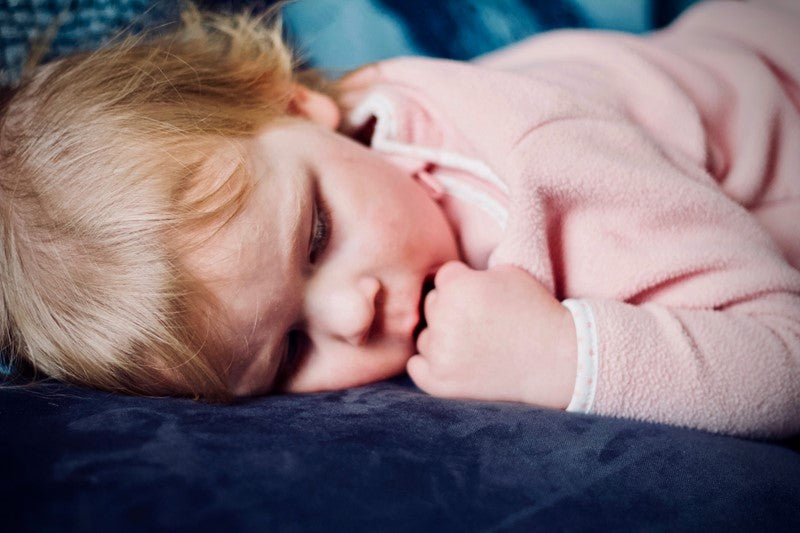In our first blog, “What is Eczema?”, we defined eczema as a skin condition that causes patches of itchiness, inflammation, swelling, and cracked skin. Having eczema can not only be a annoying during the day when it’s itchy and dry but it can also affect the amount of rest you get. For many eczema sufferers, their eczema symptoms tends to get worse at night and results in very little sleep between the itching and scratching.
About 33 to 87.1% of adults with eczema lose sleep at night and this number is significantly increased in children. So why does eczema symptoms tend to get worse at night? Doctors have a few different theories:
• Due to the body's sleep and wake cycles, a person's temperature decreases at night, which can make the skin feel itchy
• If a person has moisturized during the day, the effects may have worn off by night leaving skin more dry
• In children, sleep cycles are about an hour and in adults they are 90 minutes to 2 hours. So we are waking up more than we realize. During these brief moments in between cycles, the itchy feeling may kick in and the reflex may be to start scratching which may make the itchiness worse and ultimately waking you up fully
To help you sleep better, here are some ways to help eczema sufferers get a little bit more sleep:
• Bathe at night
• Moisturize well before bed. Try moisturizing within 3 minutes of bathing to lock in hydration. But avoid soaps and lotions that contain fragrances or dyes
• Try wet wrap therapy. If the skin tends to dry out during the night, try wrapping a damp cloth around the affected area after moisturizing. Leaving the wrap on overnight can help keep the skin hydrated
• Avoid harsh fabrics. Do not use sheets or pajamas made from fabrics that can irritate the skin (wool or polyester). Try 100% cotton or linen
• Avoid allergens before bed. If you have a pet, it’s best to not let the pet sleep in the bed with you.
• Take an antihistamine. Antihistamines may not reduce itching but it may aid in drowsiness effect and deeper sleep
• Try melatonin
• Keep your fingernails short (or try wearing gloves to bed)
• Keep the bedroom cool. Sweating and feeling hot can make the itching worse
• Established a good sleep pattern. Try to sleep at the same time each night and make time for a relaxing activity, such as reading or meditation, before bed.

